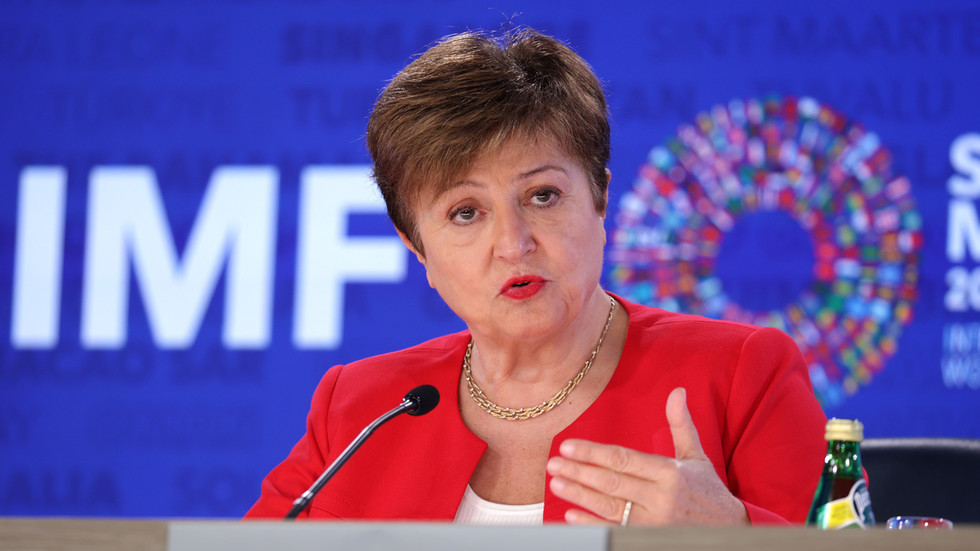The expectation of sweeping levies is creating uncertainty but unlikely to trigger a recession, the financial body’s managing director has said
US President Donald Trump’s push for tariffs is fueling significant uncertainty and undermining confidence about the global economy, but it’s unlikely to cause a recession in the near future, the head of the IMF has told Reuters.
Trump is expected to announce “reciprocal tariffs” on Wednesday, targeting countries that levy tariffs on American products or implement trade practices considered unfair by the White House. The swathe of country-specific tariffs will target all US trading partners, including the EU, China and Canada.
Trump has referred to the roll-out as “Liberation Day”.
Trump imposed multiple tariffs since his return to the White House in January, including broad levies on China, penalties on non-compliant Canadian and Mexican goods, steel and aluminum, and most recently, foreign cars and key parts.
In an interview with Reuters on Monday IMF Managing Director Kristalina Georgieva said that the IMF is expected to slightly downgrade its global economic forecast in the upcoming World Economic Outlook update, but a recession is not in sight.
“What we see in the high-frequency indicators is indeed indicating that consumer confidence, investor confidence are weakening somewhat, and we know that that then translates into an impact on growth prospects,” Georgieva said.
Her comment follows a warning from Goldman Sachs on Sunday that the US economy faces a growing risk of recession as mounting tariffs threaten to dampen growth, drive up inflation, and raise unemployment. The firm raised its 12-month recession probability to 35%, up from a previous estimate of 20%.
Investor confidence has been shaken by the unpredictable rollout of new tariffs, leading to a nearly 10% decline in major US stock indexes since mid-February, as concerns mount that the levies could stall economic growth or push the economy into a recession.
Georgieva, however, noted that the IMF has not yet observed “a dramatic impact” from the tariffs imposed or threatened by Trump since his return to the White House, and rather expects a small downward “correction.”
“The sooner there is more clarity, the better, because uncertainty, our research shows, the longer it goes, the more it may negatively impact growth,” she said.
In January, the IMF slightly raised its global growth forecast for 2025 to 3.3%, up from 3.2% in its October projection, with a substantial half-point upgrade to the US outlook – now at 2.7% – driving much of the increase.
Georgieva noted that global trade continues to expand despite a rise in protectionist measures worldwide, which have reshaped trading patterns and posed challenges to globalization.
Read the full article here


